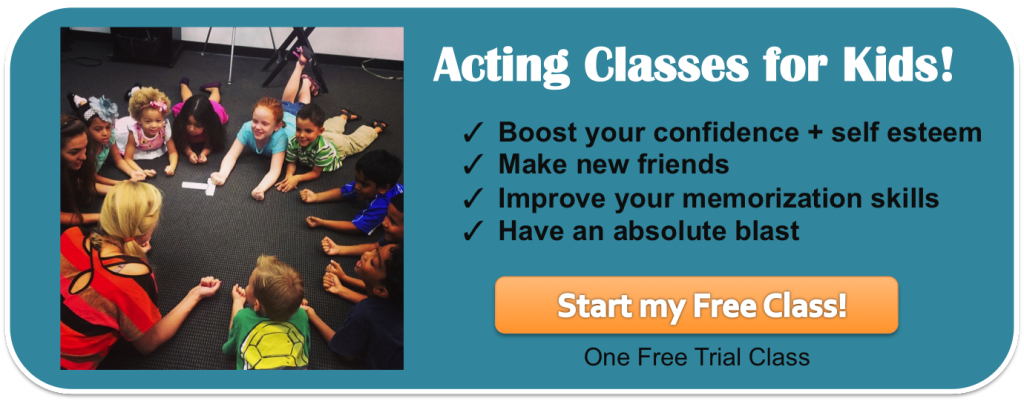How To Choose Great Monologues for Kids
Knowing how to choose great monologues for kids can tip the scales in your direction with talent agents and casting directors alike! Whether you’re looking for yourself or your child, if you choose great monologues for kids and teens, you give them an extra advantage. A great monologue is like an ideal frame, and it helps define and show off the talent within. Check out this video acting lesson from veteran actor and acting coach at 3-2-1- Acting school for kids and teens in Los Angeles, and help your child actor get ahead!
Using these basic criteria, you can find great monologues that will help you practice acting and prepare for auditions and industry professionals alike. In addition to helping you show off who you are and what you do best, look for monologues that are interesting to you. Writers use monologues often to introduce characters or deliver information or “exposition.” Some of the best monologues occur at moments of change. These are the monologues that tend to be more “active,” when one character reveals something to another character with a clear purpose or specific obstacle and action at its heart. If a monologue is not interesting to you when you read it through, feel free to keep looking. When the words grab you, you’re already half way to finding (and bringing out) the best of yourself and your performance.
Whenever you select new material, it’s always a good idea to try it out. Practice, of course, and perform for family, friends, an acting coach or an acting class for kids or teens, or your peers. Even when the material is new, before you’re entirely “comfortable,” take your monologue on a test drive with at least some audience. Better yet, try it out in an on-camera acting class! You’ll get the benefit of seeing how and where the audience responds to the material and to you. And afterward, you can review the recording, be an audience for yourself, to see where and how you’re bringing out your best. Trust your taste and your interests, and keep your confidence high (and any nerves at bay) with practice.
Now you’re ready to look for your one-minute audition pieces. Check out books, plays, screenplays, or online. Here are some online resources to help you get started:
www.freedramaplays.blogspot.com
www.freedrama.net/small1k.html
www.ace-your-audition.com/free-monologues.html
www.monologues4kids.com/comedy-monologues-for-kids
VIDEO TRANSCRIPT:
Hi, this is John Walcutt from 3-2-1- Acting Studios. Today we’re talking about how to choose practice pieces or audition pieces for yourself.
[Title Card: How to Choose Audition Scripts]
So, when you’re looking for an audition piece, or a piece to practice, or if you’re a parent looking for something for your child, a couple of things to think about as you wrap your mind around this are, number one, the length. Make sure it’s about a minute long. Number two, try to make sure it’s active. Someone pursuing an objective, trying to get something from someone else. Number three, try to make something, try to choose something that’s self-contained. Don’t wait for lines that aren’t said off camera or have somebody else feed lines to you. Rewrite the monologue so that you’re interrupting them or you’re sort of stopping them, so it’s your performance, you’re not kind of hung out, waiting for something imaginary to happen. That’s a very difficult thing to pull off. That’s the beginning of the idea.
[Title Card: Sample Monologue 1: Sanai Victoria]
It’s really a swell locket, Mr. Warbucks. But if it’s all the same to you, I’ll keep my old locket. Mr. Warbucks, when my folks left me at the orphanage years ago, they left a note saying that they’d come back to get me when they could. They kept the other half of this old locket so that I’d know them when they came. I’m gonna find them one day, Mr. Warbucks. I’m gonna have a regular mother and father, like a regular kid. I am. I don’t mean to hurt your feelings. You’ve been nicer to me than anybody in the whole wide world. But I’ve been dreaming of my folks for as long as I can remember. I just gotta find them. I do.
[Title Card: Sample Monologue 2: Oliver Houseknecht]
My mother’s ambition in life is to embarrass me. No, really. She told me that. Yesterday, she came to school in a clown costume and invited people to my birthday party. Last week, she took my baby picture and passed it out to all the cheerleaders. And today, look at her! She’s dressed up like a frog dancing in front of the science lab to protest frog dissections. Okay, mom. You win. I’ll make my bed. I’ll wash the dishes. I’ll even put the toilet seat down. Anything, mom. Just please go home.
[Title Card: Your Best Scripts Fit Your Acting Types]
So as you look at these individual examples, they’re each chosen because that particular actor is good at something. Some people are really good at emotion. They’re just sensitive and available. Some people are funny. Some people are energetic and cute. So as you look for something to show someone in order to get them interested in your work, you want to choose something that suits you, that you do really well. These examples, each one is very particular to each of these actors and each of these young people, because that’s who they are as people.
[3-2-1- Acting Studios end title card]
Related posts:














